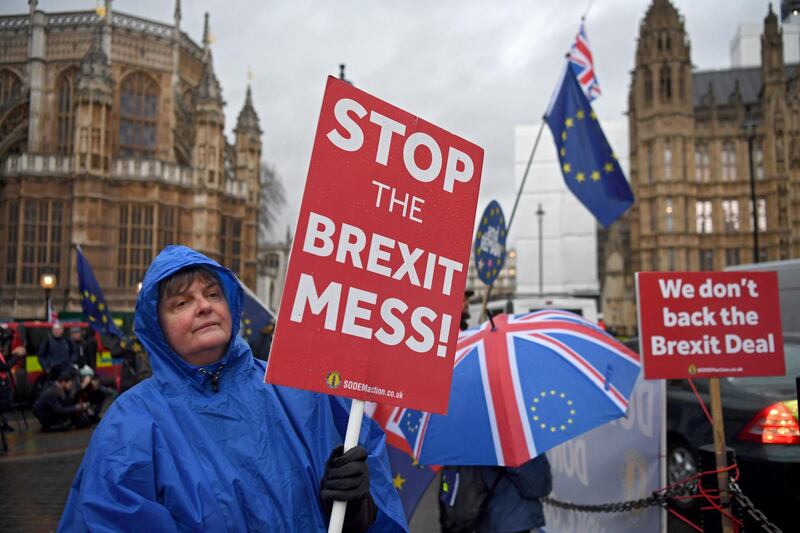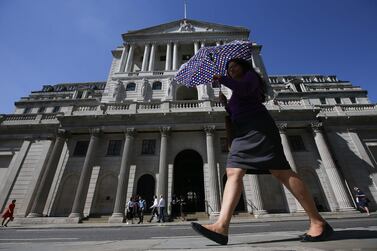The US National Security Adviser has increased pressure on Britain to make a choice between European and global trade ties.
John Bolton accused the British government of failing to implement the result of the 2016 referendum to leave the European Union on Tuesday, and said America was ready to form a trade deal after the UK left the bloc.
"We are ready to go," Mr Bolton told Sky News. "Trade Minister Liam Fox would be welcome here; any member of the government would be welcome here.
"We can do these deals quickly. We want to partner with a newly independent Britain."
He accused British members of parliament of not following the will of the public. In the June 2016 referendum, 51.9 per cent voted to leave the EU.
“The people of Britain have voted. When is the political class going to give effect to that vote?” Mr Bolton asked.
“The president [Donald Trump] has been clear that he wants a resolution of this issue that allows the US and Britain to come to trade deals again. He sees huge opportunity if Britain’s status can be resolved.”
Donald Trump Jr wrote in The Telegraph that British Prime Minister Theresa May should have taken his father's advice on Brexit.
Mrs May’s Brexit deal has been rejected by parliament twice and the government is considering asking the EU to delay its departure date beyond March 29.
Mr Fox said on Monday that the UK had agreed to trade deals with Iceland and Norway in the event of a no-deal Brexit.
The UK wants about 40 EU deals before its departure from the bloc so that current trading conditions can continue.
In February, it signed similar trade agreements with Liechtenstein and Switzerland, which is not an EU member but is part of its single market.
The UK is considering an extension of Article 50, which must be agreed to by all 27 EU member states.
Michel Barnier, the EU’s chief Brexit negotiator, said on Tuesday that the UK would need to be clear about why it wanted an extension.
Mr Barnier said that extending Article 50 could cost the EU politically and economically.
“How can we ensure that, at the end of a possible extension, we are not back in the same situation as today?” he asked.
“In any case, the European Council will need to assess what is in the best interest of the EU.”
"Extending the uncertainty without a clear plan would add to the economic cost for our businesses but could also incur a political cost."
He said the ball was now in Britain's court and its Parliament would need to decide "very quickly" what it wants to do next.







